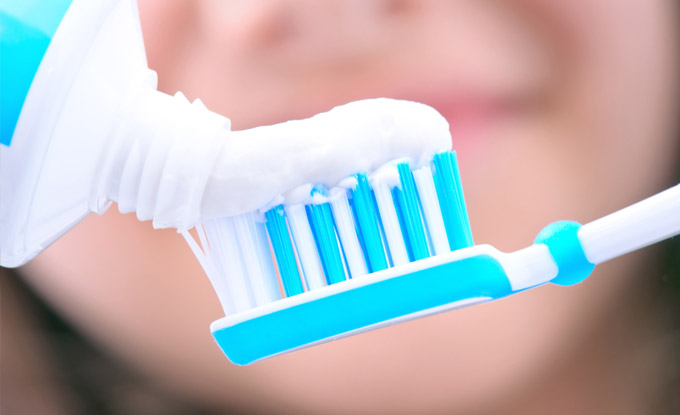 Many ads are out there discussing how a person with teeth that are sensitive to cold and heat
Many ads are out there discussing how a person with teeth that are sensitive to cold and heat
can use certain toothpastes to cure the problem. Are the claims true, and if so, how do they work? This article will uncover some of the mysteries behind toothpaste for sensitive teeth.
Causes of Sensitive Teeth
Four main causes exist that can cause sensitive teeth, all of which expose the dentine, which is the soft part of the tooth. The dentine houses tiny fluid-filled tubules, which can react to cold and heat, aggravating nerve endings.
- Receding gums: There are several factors, some of which are genetic, that cause gums to recede, but in all cases, this can expose the dentine which creates sensitivity.
- Brushing too hard: Everyone knows how important regular brushing is, but brushing too often or too hard will wear down the enamel, again exposing the dentine.
- Grinding your teeth: This is another way to wear down the enamel protecting the dentine.
- Gingivitis: Gum disease will also lead to exposure of the dentine between teeth and gums.
Ingredients in Toothpaste for Sensitive Teeth
Several ingredients are used in toothpaste made for sensitive teeth, but the most common is potassium nitrite. Yes, this is the same potassium nitrite that used to be called saltpeter and was used to make gunpowder. By brushing your teeth with a toothpaste containing potassium nitrite, the chemical is forced through the same soft dentine discussed above. The result is depolarization of the nerve endings, masking the pain. It should be noted that this does nothing to help the underlying cause, so it is very important to see a dentist if you need this type of treatment.
Toothpastes are also on the market which use a variety of other chemicals, including strontium acetate, strontium chloride and a few patented proprietary chemicals, which help block the micro-fractures and exposed tubules preventing the action which causes the pain, rather than masking the pain itself. Again, this does not help the underlying cause, which may require professional treatment. In particular, gingivitis should be treated in early stages to prevent serious dental issues later in life. Another point to remember is that sensitivity to heat only, and not to cold, may be sign you need a root canal. In either case, see your dentist before treating these problems yourself.
If you suffer from cold and heat sensitivity in your teeth and have been skeptical of the ads, you may want to give them a try after consulting your dentist.


